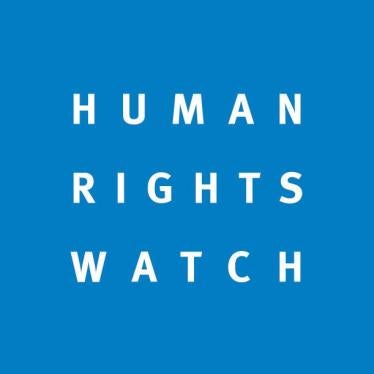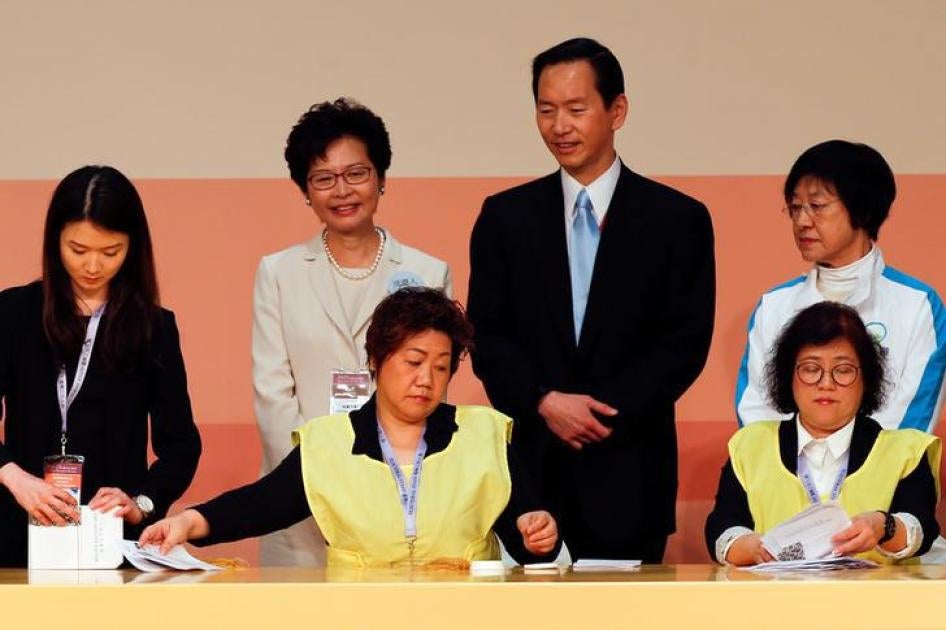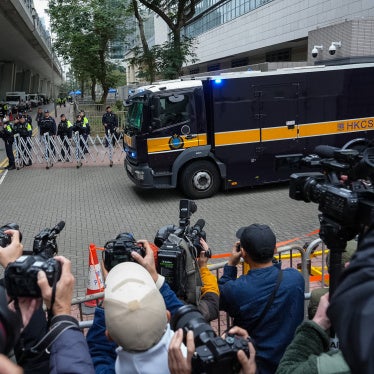Real democratic elections typically feature last-minute street campaigning, final candidate appeals, and lines of voters casting ballots. But not in Hong Kong yesterday, where the winner was largely predetermined, the electors handpicked by the mainland Chinese government, with the public playing no role.
Despite opinion polls that show her unpopular with Hong Kong people, Carrie Lam, a career civil servant, was elected chief executive by a committee of 1,200 electors heavily influenced by Beijing, which seemed determined to install a loyalist in the powerful position. In the past 15 months, Beijing had arm-twisted a Hong Kong court to remove two elected politicians who promote Hong Kong independence, and likely mainland agents abducted a Hong Kong bookseller critical of China and a high-profile billionaire, fueling fears about the territory’s autonomy.
After two decades of mainland rule, Beijing has failed to fulfill its promise of universal suffrage. Disenchanted Hong Kong people responded to Beijing’s latest slap in the face with resigned humor. Some artists ran a livestream of people walking their dogs, taking a bus ride, enjoying dim sum – anything but casting a ballot. Another group hurled rolls of toilet paper – a reference to one of Lam’s gaffes – into the compound of the China Liaison Office, Beijing’s representative office in Hong Kong.
The election has increased tensions rather than defused them. Pro-democracy party Demosisto, headed by young activists like Joshua Wong, has announced that it is going to stage “a large civil disobedience protest” on July 1, the day Lam formally takes power. Soon after the announcement, police charged leaders of the 2014 pro-democracy Umbrella Movement with the crime of “public nuisance.” It is hard not to read this as a pre-emptive move to head off similar protests – which have grown in magnitude and intensity in the past years – when China’s President Xi Jinping visits in July to mark the 20th anniversary.
Lam has vowed to “heal social divisions” as the chief executive. She could start by immediately dropping charges against the Umbrella Movement leaders. More important, she could do what so many in Hong Kong have made clear they want: reopen the process for political reform, and communicate to Beijing that Hong Kong people favor genuine universal suffrage.








